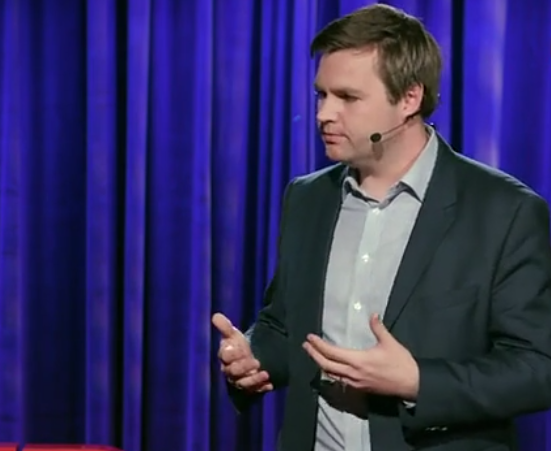And we think of these things as especially rare,
我们可能会认为这只是个别现象,
but a study by the Wisconsin Children's Trust Fund found that 40 percent of low-income kids face multiple instances of childhood trauma,
但威斯康辛儿童信托基金的研究表明,低收入家庭的孩子遭受多种童年创伤的几率为40%,
compared to only 29 percent for upper-income kids. And think about what that really means.
而高收入家庭的孩子为29%。想想这意味着什么。
If you're a low-income kid, almost half of you face multiple instances of childhood trauma.
如果你们都生在低收入家庭,你们中间差不多会有一半的人会遭遇多种童年创伤。
This is not an isolated problem. This is a very significant issue.
这不是一个孤立的问题。非常值得我们注意。

We know what happens to the kids who experience that life.
我们都清楚,这样的孩子会经历怎样的人生。
They're more likely to do drugs, more likely to go to jail, more likely to drop out of high school,
他们很可能会吸毒,会进监狱,会从高中辍学,
and most importantly, they're more likely to do to their children what their parents did to them.
最重要的是,他们很可能会在自己的孩子身上重复父母对自己的所作所为。
This trauma, this chaos in the home, is our culture's very worst gift to our children, and it's a gift that keeps on giving.
这种伤害,这种家庭的混乱,是我们的文化给孩子最糟糕的礼物,而这种礼物还在不停地被送出。
So you combine all that, the hopelessness, the despair, the cynicism about the future, the childhood trauma, the low social capital,
把这些都加在一起,无望,绝望,对未来的怀疑,童年的创伤,低社会资本,
and you begin to understand why me, at the age of 14, was ready to become just another statistic, another kid who failed to beat the odds.
你就会了解,为什么我在14岁那年几乎就要成为又一个例子,被这些壁垒困死的又一个孩子。
But something unexpected happened. I did beat the odds. Things turned up for me.
但意料之外的事情发生了。我冲破了这些壁垒。事情出现了转机。
I graduated from high school, from college, I went to law school, and I have a pretty good job now. So what happened?
我念完高中,上了大学,进入法学院,找到了一份不错的工作。究竟发生了什么呢?












